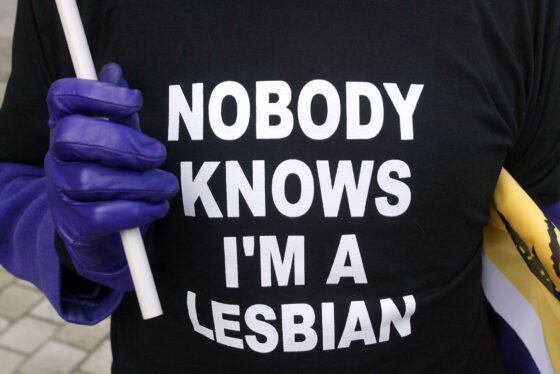
At work, lesbians are reluctant to ‘come out’. Whatever professional sector they develop in, or their position in the hierarchy, they fear inappropriate comments, misunderstanding or simply discrimination.
“It comes through a small comment or a glance. It doesn’t seem like much, but it’s a small stone that adds to my backpack”says Aurore Foursy, 39, an executive at an agri-food company. “It’s a bit of a double hazard. If we live with a woman alongside sexism, we become more marginalized.”
If 80% of lesbians say they have told a handful of colleagues that they are gay, less than a third have reported it to their superiors, according to the results of an Ifop survey conducted among 1,400 people for the association L’Autre circle. which fights against discrimination at work against LGBT people.
Of those who have never talked about their life as a couple with a woman in the office, four in ten say they have “invented” a heterosexual life for conversations between colleagues, for example by changing their partner’s first name to a male first. name. Aurore Foursy, she’s “trying to talk about it from the start” of a new position. To “not get stuck” because “it’s hard to get out afterwards”.
More than half of lesbians who have not concealed their homosexuality say they have been subjected to at least one form of discrimination or aggression because of their sexual orientation, according to the survey for L’Autre Cercle. A larger share in traditionally male sectors, such as transport or industry.
Self-censorship, attempts to hide and/or fear of discrimination weigh on the morale and health of lesbians, whether or not they have come out in their professional lives, the association notes.
“jumping frog”
And that doesn’t help “invisible” lesbians talk about their life as a couple or family in the office, as is often the custom for their straight colleagues. Many would like to talk about it, but do not dare for fear of the consequences.
“The hierarchy and gender differentiations remain strong. It is not easy to say out loud that you are a lesbian in a professional environment”, says Anaïs, 26, who does not want to give her last name. †We reproduce the patterns, the clichés around the straight norm, without questioning ourselves”regrets this employee of a large publicly traded company.
She is relatively new to her business and has not yet discussed her love life with her young colleagues. But she puts her water bottle in the colors of the LGBT flag on her desk. “LGBT visibility is important to make things happen”she says, hoping soon to have the courage to take the plunge with the colleagues she values most.
The solution to help lesbians be themselves at work? †The visibility of LGBT colleagues and the example of the company, which guarantees a favorable working environment”says Sylvie Meisel, 63 years old.
Until she was 45, she never dared to say anything about her affective and family life at work. “It was real self-censorship. Everyone was talking about their weekend and I either left or dodged all the questions”remembers the one who then held a management position in a private company.
At work, women leaders are already dealing with sexism, she notes. If we add that we are lesbian, “It’s double discrimination”†
When she changed employers at 45, her colleagues were women who didn’t try to hide their homosexuality. “It became easy to talk about it”† She then realized “the psychological weight” caused by the silence she had imposed on herself for over 20 years.
(AFP)